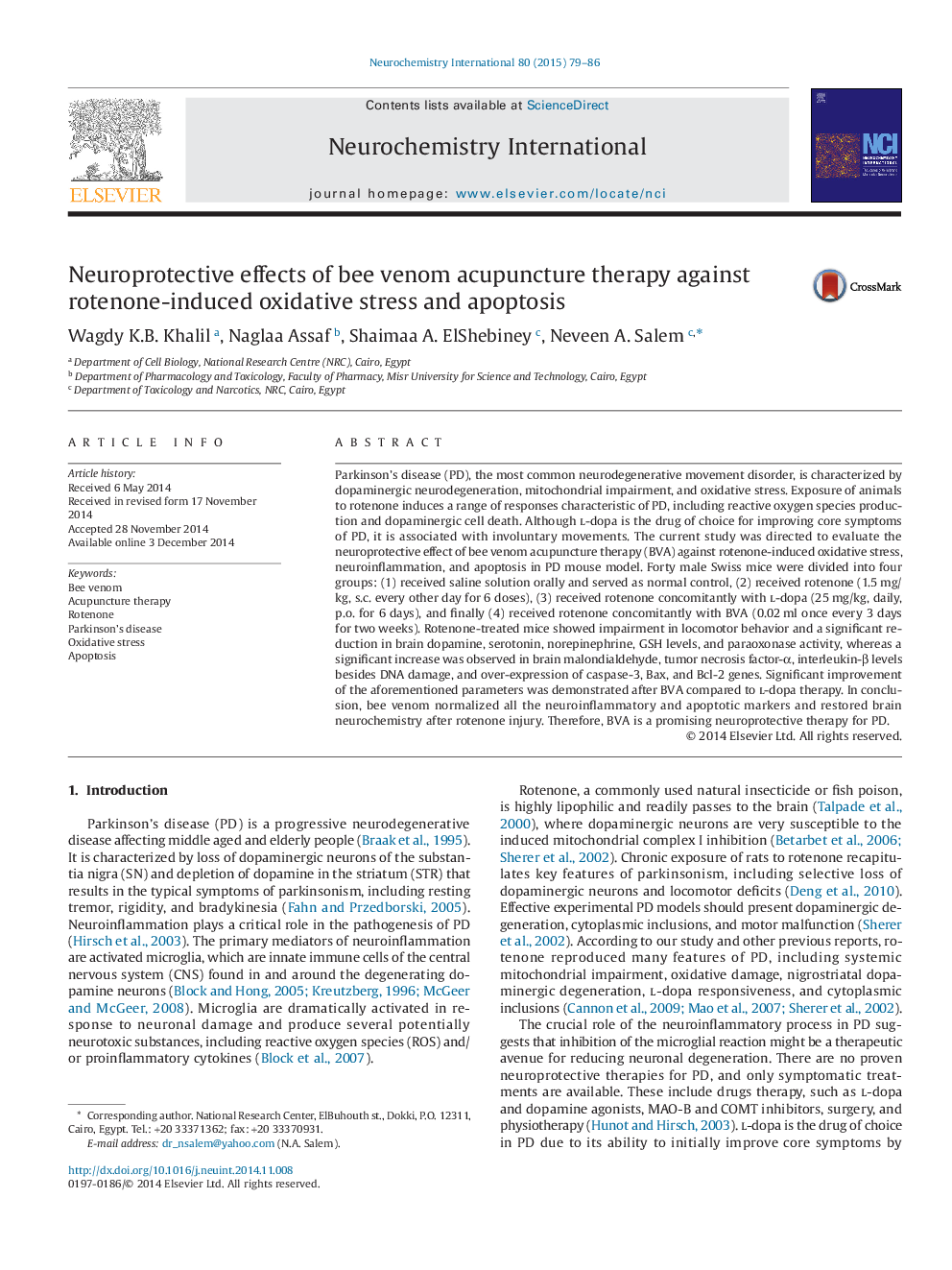| کد مقاله | کد نشریه | سال انتشار | مقاله انگلیسی | نسخه تمام متن |
|---|---|---|---|---|
| 2200442 | 1551293 | 2015 | 8 صفحه PDF | دانلود رایگان |
• Bee venom prevents dopamine depletion after rotenone administration.
• Locomotor activity was restored after bee venom treatment of parkinsonian mice.
• Bee venom inhibited DNA damage more effectively than levodopa.
• Bee venom retained the expression of Bax, Bcl-2, and Caspase-3 genes in brain.
• Bee venom provides neuroprotection against rotenone induced apoptosis.
Parkinson's disease (PD), the most common neurodegenerative movement disorder, is characterized by dopaminergic neurodegeneration, mitochondrial impairment, and oxidative stress. Exposure of animals to rotenone induces a range of responses characteristic of PD, including reactive oxygen species production and dopaminergic cell death. Although l-dopa is the drug of choice for improving core symptoms of PD, it is associated with involuntary movements. The current study was directed to evaluate the neuroprotective effect of bee venom acupuncture therapy (BVA) against rotenone-induced oxidative stress, neuroinflammation, and apoptosis in PD mouse model. Forty male Swiss mice were divided into four groups: (1) received saline solution orally and served as normal control, (2) received rotenone (1.5 mg/kg, s.c. every other day for 6 doses), (3) received rotenone concomitantly with l-dopa (25 mg/kg, daily, p.o. for 6 days), and finally (4) received rotenone concomitantly with BVA (0.02 ml once every 3 days for two weeks). Rotenone-treated mice showed impairment in locomotor behavior and a significant reduction in brain dopamine, serotonin, norepinephrine, GSH levels, and paraoxonase activity, whereas a significant increase was observed in brain malondialdehyde, tumor necrosis factor-α, interleukin-β levels besides DNA damage, and over-expression of caspase-3, Bax, and Bcl-2 genes. Significant improvement of the aforementioned parameters was demonstrated after BVA compared to l-dopa therapy. In conclusion, bee venom normalized all the neuroinflammatory and apoptotic markers and restored brain neurochemistry after rotenone injury. Therefore, BVA is a promising neuroprotective therapy for PD.
Journal: Neurochemistry International - Volume 80, January 2015, Pages 79–86
